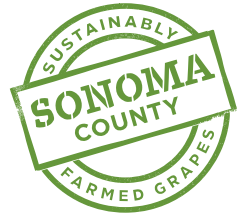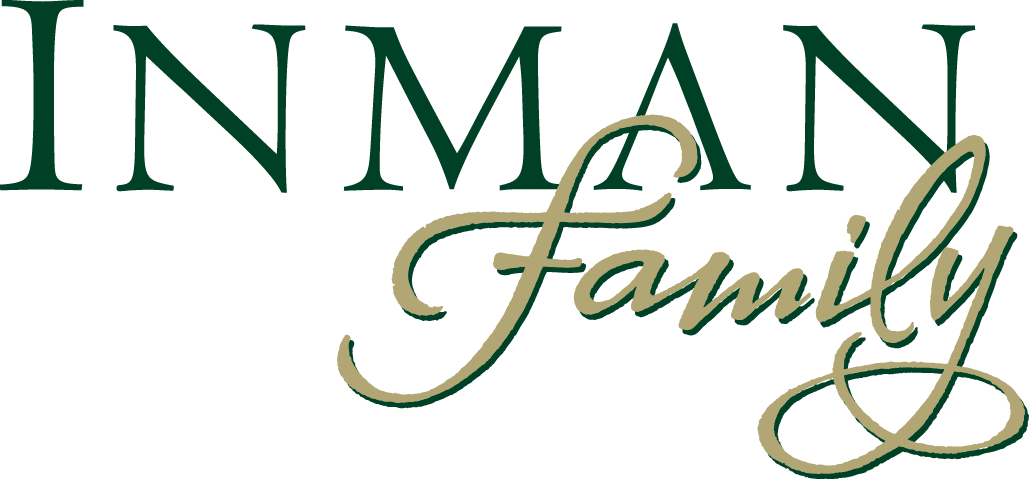Regenerative Farming and Sustainable Practices
We’re committed to using regenerative farming practices and natural winemaking techniques to ensure that our wines express the true character of the grapes and place where they are made.
Kathleen Inman
Owner, Winemaker
Olivet Grange Vineyard
 Modern farming techniques often emphasize production at the expense of soil health and eco-system integrity. At Inman Family Wines, we work tirelessly to solve every farming need with a solution that not only produces excellent quality wine grapes, but also enriches the environment around us.
Modern farming techniques often emphasize production at the expense of soil health and eco-system integrity. At Inman Family Wines, we work tirelessly to solve every farming need with a solution that not only produces excellent quality wine grapes, but also enriches the environment around us.
That is why we are committed to regenerative farming practices. This includes using organically-certified inputs, planting cover crops, no tilling of the soil, and creating a welcoming habitat for insects, birds and a variety of other wildlife.
Organic Soil Inputs
We use worm castings to create an easily assimilated bio-fertilizer rich in nitrogen, phosphorous and potassium. The castings enhance the soil’s ability to absorb atmospheric moisture, aiding water economy and aeration. Another soil-enhancing technique we employ is to run microbial teas made from the worm castings through our drip irrigation system. Applied three times a year, the teas introduce a diverse spectrum of beneficial microorganisms that improve soil and plant health and aid the vines’ natural resistance to pests and disease.
Cover Crop
To further promote a healthy ecosystem, we have planted permanent cover crops, which have the side benefit of producing higher-quality grapes by forcing the vines to compete for water and soil nutrients, resulting in smaller berries with more concentrated flavors. Once cover crops are established, simple mowing keeps the vineyard tidy and well-groomed. Because there is no tilling of the soil, the vineyard requires less tractor use, and the population of earthworms is preserved. Cover crops also mitigate soil erosion from wind and rain and serve as habitats for beneficial insects that feed on vine pests such as mites and leafhoppers, minimizing the use of pesticides, even organic ones. In 2009, we spread the seeds of wildflowers which attract beneficial insects around the perimeter of the vineyard blocks – often referred to as an “insectary.”
Natural Pest Control
No RoundUp is used at the OGV Estate. In addition to encouraging a healthy ecosystem of insects, we provided homes and resting places throughout the vineyard for predators such as owls and other birds of prey that help to reduce gopher populations that attack vines beneath the soil. Encouraging their presence also has the added benefit of scaring away small birds such as starlings and linnets that enjoy feasting on Pinot Noir grapes.
Food Scrap Compost
We only use organic fertilizer at the Olivet Grange, by spreading compost under the vines and brewing compost teas from food scrap compost. Bay Area restaurants and homes provide food scraps that eventually make their way to us at Olivet Grange as compost.
An interesting fact: recently published research determined that if 90% of Americans composted it would be the equivalent of closing 22 coal-fired power stations in terms of the reduction in greenhouse gasses that are created by landfilling food scraps rather than composting them.
Our Sustainable Winery
When we built the winery in 2010, we used as much repurposed and recycled materials as possible to try to reduce our impact on the environment.
Our solar panels produce 100% of the energy the winery uses. All of the wood and cabinets in the tasting room are made out of the old barn we took down to build the winery. The walls are highly insulated, and our windows help to keep the temperature controlled. The counters in the winery are made of recycled glass from San Francisco’s recycling program.
We also use steam to clean and sanitize in the winery. Using steam to clean a barrel uses only six gallons of water, compared to using hot water which can use up to 60 gallons! We reuse all of our waste water and have 16,000 gallons of storage for waste water.
Our parking lot includes the first private company in the North Bay to offer a publicly available electric vehicle charging station.
The packaging we use to send you your wine is made out of 100% recycled materials and is biodegradable.
Stay in touch
We have a quarterly newsletter to help everyone stay connected. Sign up and keep up to date on upcoming wine releases and winery events. You don’t want to miss out!

